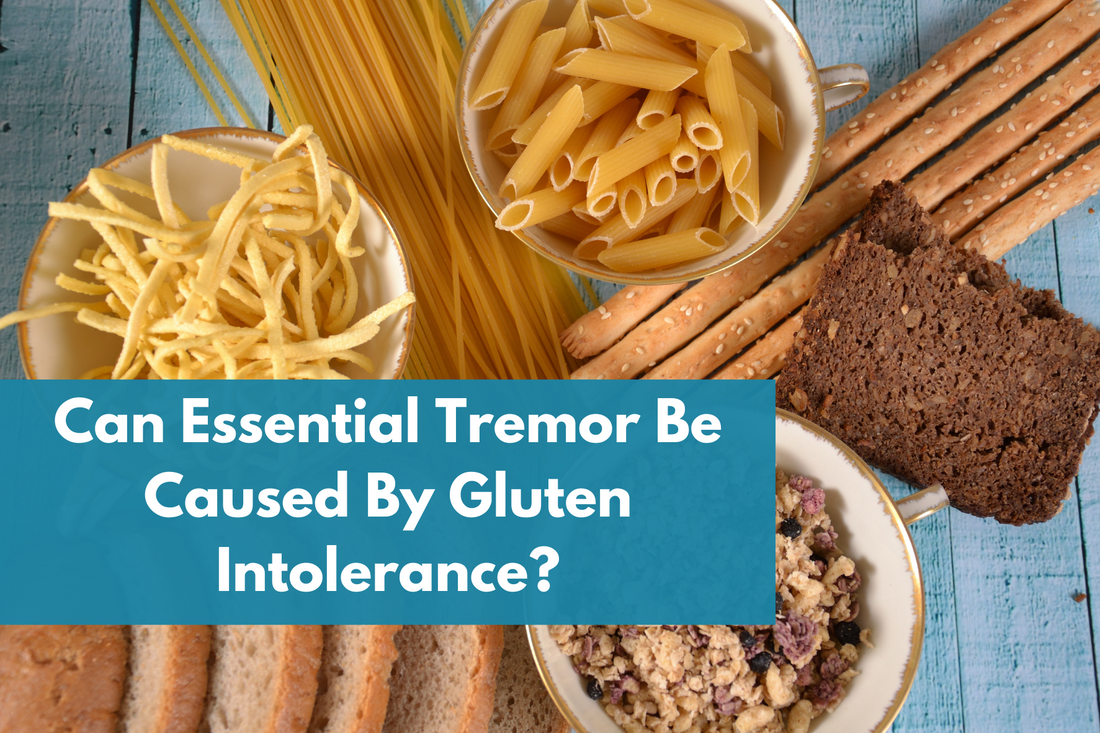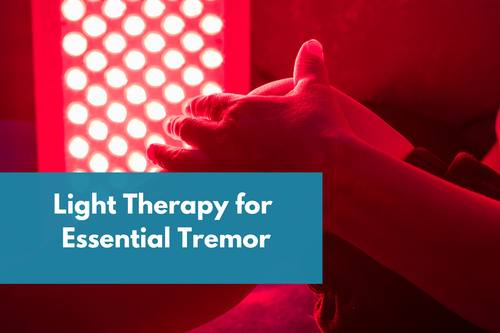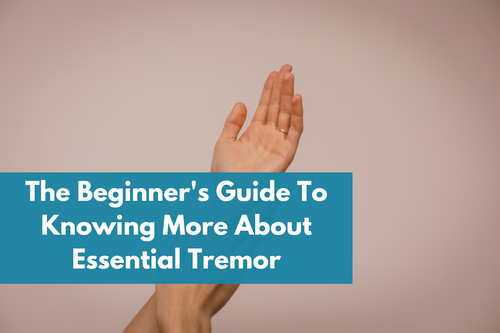
Can Essential Tremor Be Caused By Gluten Intolerance?
Share
Are you worried about unexplained hand tremors and voice shaking? The chances are you might be suffering from essential tremors. But have you ever wondered that the food you eat could be the culprit for these constant shakings?
Already, the rumours are spreading fast that gluten intolerance might be the cause of essential tremors. Curious? Let’s find out if gluten is to be blamed for these tremors and how just a change in diet can bring improvement in your quality of life. But before we dive deep into the topic, let me explain what essential tremors and gluten intolerance are.
What are essential tremors?
It is a common movement disorder caused by malfunctioning of the nervous system. It causes involuntary and rhythmic shakings in most parts of the body, especially hands and arms, during action and standing still. Although it's not a life-threatening condition, it can worsen over time.
You might experience the following symptoms with this kind of tremor:
- Quivering voice
- Walking or balancing problems
- Uncontrollable shaking in hands and arms
- Difficulty doing tasks with hands, such as holding a cup and writing
- Shaking of the head in Yes and No movement
- Tremors in your leg or feet
Essential tremors might look like Parkinson's disease, but it’s not the same. There’s no exact cause for this disorder. But scientific evidence suggests that cerebellum degeneration may be linked with essential tremors. Cerebellum is a part of the brain that controls muscle movement.
Other factors, such as some medications, low blood sugar levels, stress, etc., might trigger tremors or increase their frequency. You may also experience essential tremors if one of your parents has this condition. In fact, 50% of the cases of essential tremors are genetic, as per NIH.
What is gluten intolerance?
It’s important to know that there’s not just a single gluten-related disorder. In fact, there are multiple diseases associated with this protein. The most common are celiac disease, wheat allergy and non-celiac gluten sensitivity (NCGS). Some people use gluten intolerance as a common term for all gluten-related disorders, but to be precise, it’s another term for NCGS.
Coming to the definition part, gluten intolerance is when you get sick after ingesting gluten, a protein found in wheat, rye, and other grains. It’s more prevalent than celiac disease and affects nearly up to 6% of people in the United States. You might experience abdominal pain, bloating, depression, fatigue, headache, joint pain, and many other symptoms.
Its exact cause isn’t known. But an article published in Harvard Medical school suggests that NGCS causes an abnormal increase in levels of a specific protein in body that triggers inflammation. Inflammation is our body’s first immune response against pathogens. Further, it decreases the number of T-cells that are supposed to dampen inflammation after removing the virus.
Although its symptoms are much similar to celiac disease, you won’t test positive for CD/ wheat allergy if you are gluten intolerant. Its diagnosis is hard as there are no specific tests. The only option right now is to rule out wheat allergy/celiac disease and eliminate gluten from the diet to see if the symptoms disappear.
Can essential tremors be caused by gluten intolerance?
Many gluten-related diseases (GRDs) are notorious for causing movement disorders. There are a bunch of scientific articles that suggest there might be a connection between the GRD and essential tremor.
A study published in the World Journal of Gastroenterology found that tremors are more prevalent in people with celiac disease than in the control group. It also showed that a family history of tremors was more common in the control group who had tremors with no CD than those with CD who had tremors. It strongly suggests that tremors in celiac disease might be possibly related to the disorder itself.
Another article systemically reviewed the literature on movement disorder in celiac disease and gluten sensitivity. As per review, various cases of tremors affecting the limb, jaw, head and tongue are reported in people with CD.
One more study published in 2016 studied the neurological dysfunction in non-celiac gluten sensitivity and celiac disease. It found that 46% of subjects with NCGS and 41% of those with celiac disease had cerebellar ataxia.
As the name indicates, cerebellar ataxia causes sudden uncoordinated muscle movement due to cerebellum damage. As you have read this far, you must know cerebellar dysfunction can cause ET. A 2020 study also confirms essential tremors are the most common form of cerebellum degeneration.
The above studies suggest that gluten might be the reason for your essential tremors, but we need more research to confirm the association.
How does gluten damage brain health?
ET isn’t just one possibility of how gluten affects your brain; there are many more manifestations, such as brain fog and ADHD. When you eat any food that contains gluten, the enzyme present in the body called proteases breakdown the protein into its components.
Our body’s immune system first assesses the food we eat to look for any foreign agent in the gut through GALT, gut-associated lymphoid tissue. In the case of gluten sensitivity, GALT recognizes gluten as a threat and produces antibodies against it.
These antibodies don’t only attack gluten and its component but also transglutaminase tTG. tTG keeps the hair-like structures, microvilli, in the gut stay close together. So the immune attack on this substance makes your gut leaky.
Further, gluten triggers the release of zonulin, a protein that controls the tight junctions in the gut. Once zonulin is released by gluten, it breaks apart tight junctions.
This, in turn, increases gut permeability, which causes many toxic substances to be released into the bloodstream, affecting different body parts, including brain. When your immune system is alerted to this reaction, it mounts another attack and starts a vicious cycle of inflammation.
How do I know if my tremors are caused by gluten intolerance?
I understand you might be impatient to know if the gluten is to be blamed for your hand shakings. But there’s just one way to find out if it’s the culprit.
- Remove the gluten from your diet for a month or more.
- Notice if any of your symptoms disappear.
- Reintroduce gluten in your diet after 30 days and see if the tremors return.
- If they do, again try a gluten-free diet for a few weeks and then reintroduce gluten into your diet.
- If you notice constant negative regression after a few times, you might have some serious problems with gluten.
Gluten-free diet for essential tremors
There’s no cure for gluten intolerance. Many people find relief from symptoms by following GFD. A case report published in the Journal of Child Neurology suggests that a gluten-free diet might resolve tremors in CD within 3 months.
Before you follow GFD, you must consult your healthcare provider, as it can change your nutrient intake and cause certain deficiencies. This includes:
- Vitamin B12
- Vitamin B6
- Vitamin E
The lack of these important nutrients in the body backfires and causes tremors, irritability, fatigue, depression and anxiety. So, it’s important to measure your vitamin levels, particularly vitamin B12, and follow GFD under the supervision of a nutritionist.
Conclusion
Some evidence suggests that there might be a link between gluten sensitivity, particularly celiac disease, and essential tremors. But we need more studies to confirm the association between the two. Some people with celiac disease or gluten sensitivity might find relief from neurological symptoms, such as tremors, by following a gluten-free diet. It’s a good idea to consult with your nutritionist before starting GFR as the nutritional deficiencies may backfire tremors.
Author: Syeda Qurat ul Ain Ali, Doctor of Pharmacy from Pakistan's Shifa College of Pharmaceutical Sciences.



























